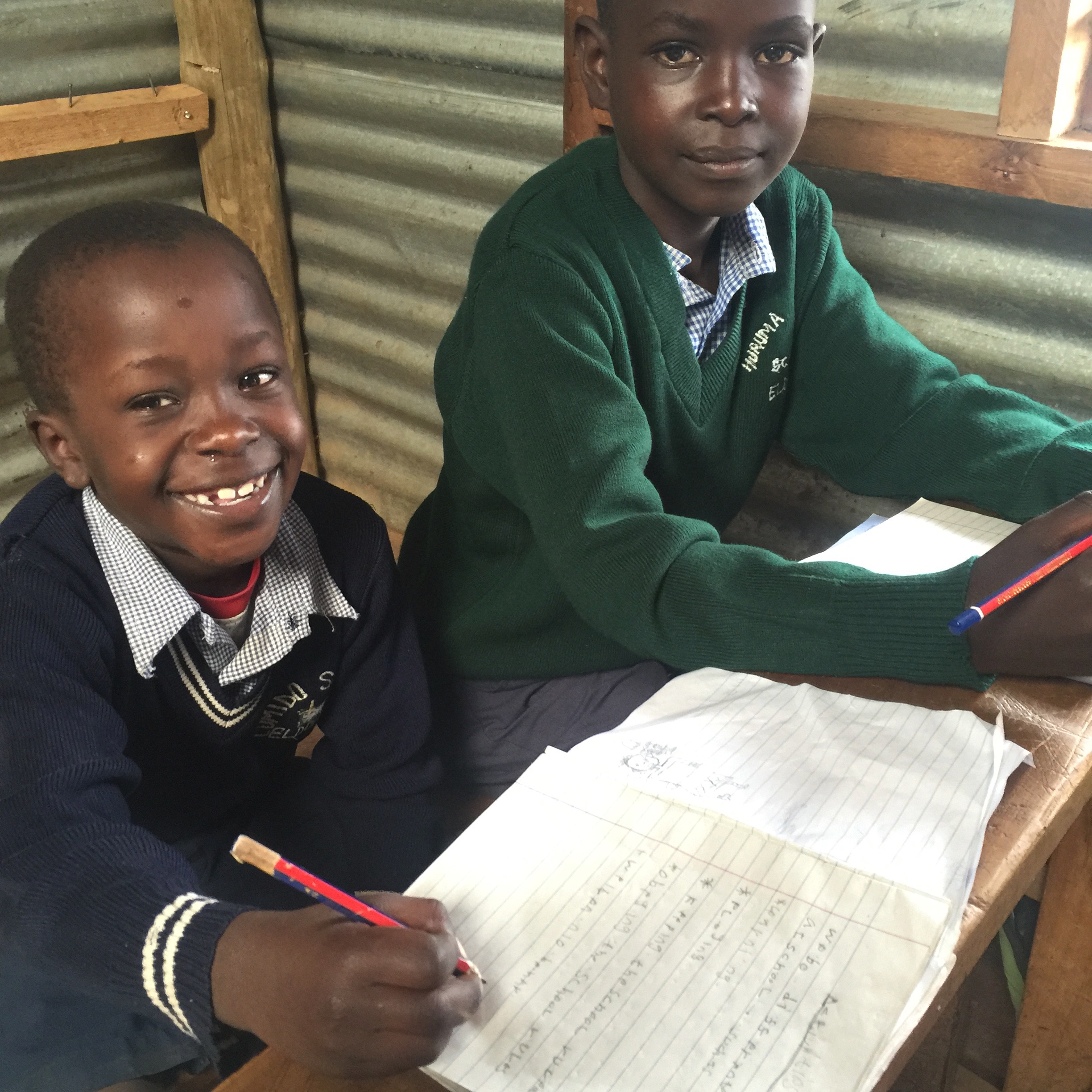Today, Michael Maldanis, founder of twenty8 | twenty7, shares his perspective as a nonprofit leader who is gathering support from his local community to bring education, jobs, and clean water to Eldoret, Kenya.
In the middle of January of 2018 I was sitting in a hospital room holding a new baby boy. I was a father. Our family of two, is now a family of three. Within 48 hours of my son’s birth I was weeping in the hospital room as I held him. My wife, as would be predictable in empathizing a new dad, looked over and said, “isn’t he beautiful”? But I wasn’t moved by beauty in that moment, although it was true. Instead, I was grieving.
In 2013 my wife and I launched twenty8 | twenty7, to respond ‘glocally’ to needs around us and in far places. The largest need among those that had our attention was Comido School in Eldoret, Kenya. It was a gospel effort that was started by a local in a deeply impoverished area. Its purpose was to provide an education to those who would otherwise be forgotten and uneducated. It would provide two meals a day and a safe schooling environment for these sweet vulnerable children. It started small with a baby class, as did our involvement. We asked ourselves and our partners, what would happen in this area would this school not exist? Wandering, illiteracy, idleness, forgotten-ness, conflict, vulnerability to mistruths, lack of a healthy self-image, gangs and drugs, and trafficking of all kinds. We were convinced based off of a core value that all people have inherent value and deserve dignity, that this was a worthy investment of our time, energy, and any sacrifice that would be required.

Education is the chief interrupter of poverty, trafficking, conflict, and disease outbreak. This school, located along the HIV highway in Kenya, has since hosted many local trainings and health initiatives for the community. The vision had value, as did the purpose. It was so much more than a “school”.
Over the last few years we’ve had folks here in the Lake Ray Hubbard area who have been able to resource new property, new classrooms, new lighting sources, new water collection systems, and what has been most needed – scholarships. We’ve invited people into small income generating projects for the school and recently had that very first baby class pass their exams for entry into high school! A young girl named Susan, even placed 1st in her class after her first year in high school. This was the first true “proof” that this school was “working”. It proved that the education that was being provided here met or exceeded that of the national level. There is still more work to do and school fees will be an ongoing need as more and more children are able to attend Comido School. The momentum inside of the classrooms is building.

But what about the teachers and staff? What about the parents? What is happening outside of the classroom, beyond the walls? What about their unnecessary distress? Well, that’s why I was grieving. I looked into the eyes of my vulnerable newborn son, who was not planned or expected (after our story of infertility), who did nothing to be born to me, in this place, at this time…and I thought of the men and women who I knew in Kenya. I know they look at their babies and kids and had willing spirits to do whatever it would take to provide for their children. Then I thought of the jobs that weren’t available. I thought about how hard it is for them to provide for their kids. I thought about the parents who had to make a decision of which child would get to go to school. I thought about the father who was raising three kids on his own and had one of the few jobs around that allowed him to put some pieces of bread on the table. How he had to leave those kids each day – on their own – trusting the eldest (five years old) to take care of the two younger children, or surely lose his job. Would they lose their 10×10 mud hut covered with a tin roof? Where do you go after that?
In that hospital room, I grieved for them. I grieved the challenge they had in getting work, in innovating new jobs, in creating businesses and industries. I also knew at that time what the next few years of the partnership were going to look like. It’s time to expand further. It’s time to go from the classroom to the ‘living room’. It’s time to take our efforts to interrupt the poverty cycle in the lives of the children and to join in the restoration of dignity in the home. The undisputed fact globally is that when one isn’t able to provide for their family, it is a destructive season. There is a loss of dignity and self-respect that often leads to deep and dark behaviors. What little comes in can get squandered on booze and illicit sex, anything to make them “feel” better, even for just a few moments. Loss of dignity is a chasm in the heart of a person.
So off we go, asking a ton of questions in order to find out how best to be a part of restoring dignity through work. Micro-gifts, micro-loans, and job creation. What will we find in those living rooms? What will be their needs? What can we teach each other? How can we encourage one another? We need to ask questions. We need to ask GOOD questions. We are off to discover how to share life in a way that gives us ALL dignity.
If you know someone who is Doing Good in Dallas, we’d love to hear about it! Share their story with us.
Story and photos by Michael Maldanis.